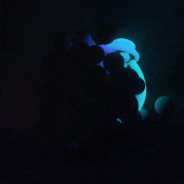I read an article recently that talked about how players of Smash Bros. Ultimate are complaining about the netplay experience. It's too laggy. I've also read that Ultimate has 5 frames of delay, even in local play, so that when you're online and there's some lag… say 3 frames of it, the game will reduce this delay to 2, so that it evens out, and the local play and netplay will feel pretty much the same. This seems like a cheat; cheating the local players out of a smoother experience. It also begs the question: Why didn't they go with rollback?
Smash Bros. designer Sakurai said that they had considered Rollback, but that they decided against it because it would have “too many side-effects”. There's a version of Dolphin called Slippi, that fans have modified to use Rollback for Smash Bros. Melee specifically, and it works like a dream. Granted, Slippi is only used for 1-1 games without any items, stage hazards, etc.. but surely with enough time and effor that could have been made to work too? What I'm wondering is: What kind of “side-effects” is he talking about?







